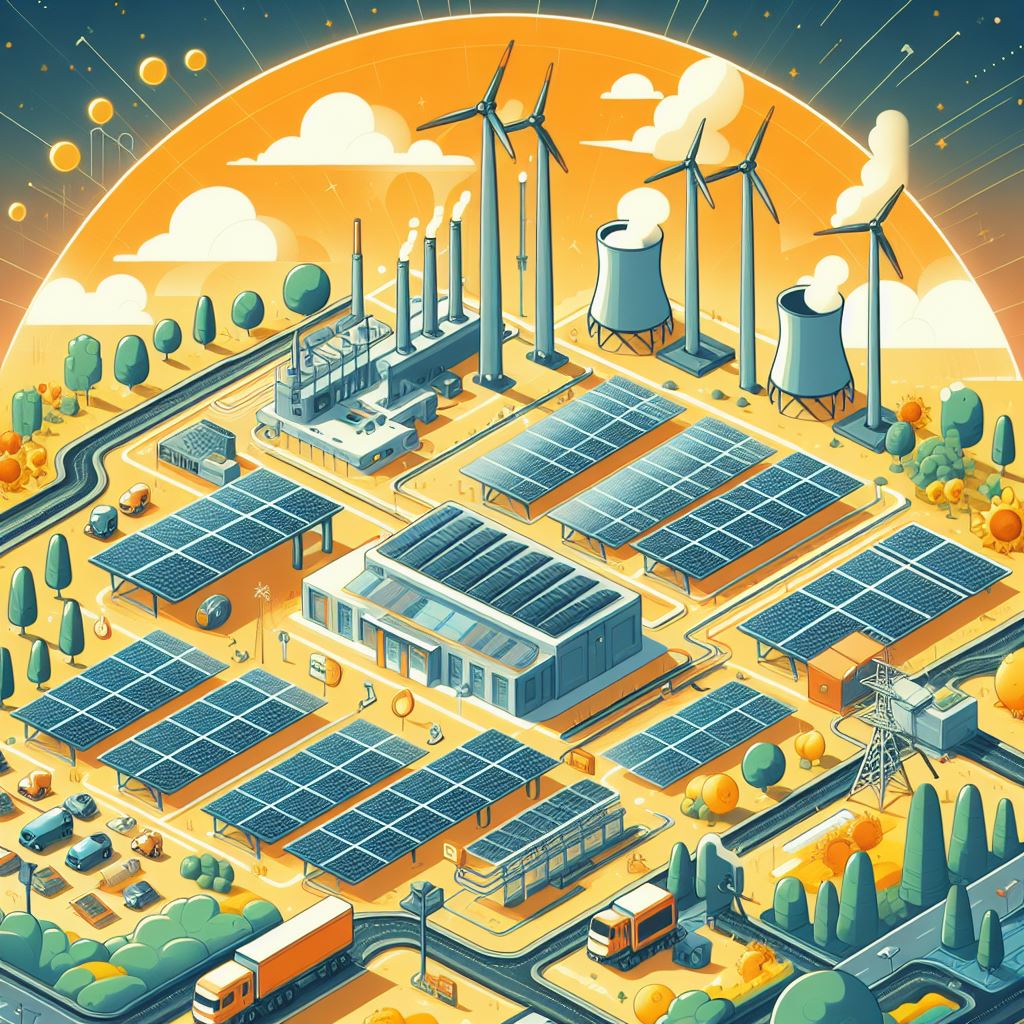In today’s rapidly evolving world, the importance of renewable energy cannot be overstated. As we face growing concerns over climate change and depleting fossil fuel reserves, transitioning to sustainable and renewable energy sources has become crucial. Renewable energy offers numerous benefits, ranging from environmental advantages to economic opportunities. This comprehensive guide will delve into the various benefits of renewable energy and explore why it is a key solution for a sustainable future.
- Environmental Sustainability
One of the primary reasons why renewable energy is gaining widespread recognition is its positive impact on the environment. Unlike fossil fuels, which release harmful greenhouse gases into the atmosphere, renewable energy sources produce little to no emissions. We can significantly reduce our carbon footprint and combat climate change by harnessing the power of wind, solar, hydro, geothermal, and biomass energy. Embracing renewable energy technologies can help mitigate the adverse effects of global warming, preserve ecosystems, and protect our planet for future generations. - Energy Security and Independence
Another compelling benefit of renewable energy is its ability to enhance energy security and independence. Unlike fossil fuels, which are often subject to price volatility and geopolitical tensions, renewable energy sources are abundant and widely distributed. By diversifying our energy mix and relying more on renewables, we can reduce our dependence on foreign energy sources and enhance our energy self-sufficiency. This not only strengthens national security but also insulates us from the uncertainties of the global energy market. - Economic Growth and Job Creation
The transition to renewable energy offers immense economic potential. Investing in renewable energy technologies stimulates economic growth and creates new employment opportunities. The renewable energy sector is a significant driver of job creation, with a wide range of employment prospects, from manufacturing and construction to research and development. As we shift towards renewable energy, we can foster innovation, attract investments, and establish a sustainable green economy that generates long-term prosperity. - Cost-Effectiveness
Contrary to popular belief, renewable energy is becoming increasingly cost-effective. Technological advancements, economies of scale, and supportive policies have significantly reduced the cost of renewable energy generation. Solar and wind energy, in particular, have witnessed remarkable cost reductions over the years. As a result, renewable energy is now often on par or even cheaper than conventional fossil fuel-based energy sources. Embracing renewable energy not only helps mitigate climate change but also provides financial savings for individuals, businesses, and governments alike. - Health and Well-being
The negative impacts of fossil fuel combustion on human health are well-documented. Air pollution from burning fossil fuels contributes to respiratory diseases, cardiovascular issues, and premature deaths. By transitioning to renewable energy, we can improve air quality, reduce pollution-related health risks, and enhance public health. Cleaner energy sources such as solar and wind power have minimal air and water pollution impacts, creating a healthier living environment for communities worldwide. - Technological Advancements
Investments in renewable energy have accelerated technological advancements and innovation. As demand for clean energy solutions grows, research and development efforts are focused on improving the efficiency, reliability, and scalability of renewable energy technologies. Breakthroughs in energy storage, grid integration, and smart systems have made renewable energy more accessible and reliable than ever before. These advancements not only benefit the renewable energy sector but also have broader applications in other industries, driving overall technological progress. - Energy Resilience and Reliability
Renewable energy sources offer enhanced energy resilience and reliability. Unlike centralized fossil fuel power plants, renewable energy systems can be decentralized and distributed across various locations. This decentralization minimizes the risk of widespread power outages caused by natural disasters or equipment failures. Additionally, renewable energy sources like solar and wind can complement each other, providing a more stable and reliable energy supply. By integrating renewable energy into our grid infrastructure, we can improve energy resilience, reduce the vulnerability of power systems, and ensure a consistent supply of electricity even in challenging circumstances.
- Community Development
Renewable energy projects have the potential to bring about positive changes at the community level. Local communities can benefit from the establishment of renewable energy facilities through job creation, increased tax revenues, and investments in local infrastructure. Moreover, community-based renewable energy initiatives empower individuals and organizations to actively participate in the energy transition, fostering a sense of ownership and community pride. By engaging communities in the development and operation of renewable energy projects, we can build stronger and more sustainable societies. - International Cooperation
The shift towards renewable energy has paved the way for international cooperation and collaboration. Countries around the world are recognizing the mutual benefits of sharing knowledge, technology, and resources to accelerate the global energy transition. Initiatives such as joint research projects, knowledge-sharing platforms, and renewable energy partnerships foster collaboration among nations and facilitate the exchange of best practices. By working together, we can overcome common challenges, drive innovation, and achieve a sustainable energy future on a global scale. - Long-Term Sustainability
Renewable energy is not just a short-term solution; it offers long-term sustainability and viability. Unlike finite fossil fuel resources that will eventually deplete, renewable energy sources are infinite and readily available. By investing in renewable energy today, we lay the foundation for a sustainable and resilient energy system that can meet the needs of future generations. This long-term perspective ensures energy security, mitigates the risks associated with resource scarcity, and provides a sustainable energy solution for the long haul.
In conclusion, the benefits of renewable energy are extensive and far-reaching. From environmental sustainability and energy security to economic growth and technological advancements, embracing renewable energy offers a multitude of advantages. By transitioning to clean and renewable energy sources, we can protect the environment, create jobs, enhance energy independence, and foster long-term sustainability. The time to act is now, and by prioritizing renewable energy, we can shape a brighter and greener future for generations to come.















